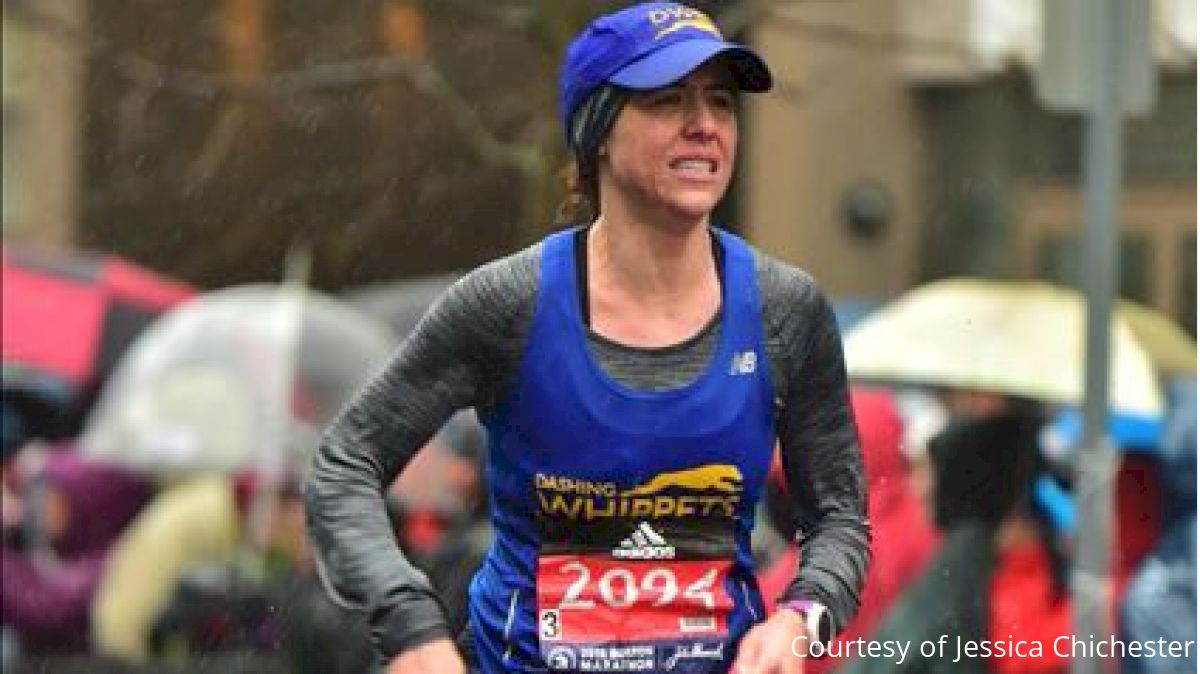BAA To Award Non-Elite Women Their Boston Marathon Prize Money, After All
BAA To Award Non-Elite Women Their Boston Marathon Prize Money, After All
Five women who did not race the Boston Marathon with the elite field will receive prize money in an unprecedented decision by the B.A.A.

The Boston Athletic Association (BAA) will award an extra $21,700 in prize money to five women whose net finish times placed amongst the top 15 overall and top five masters runners at the Boston Marathon despite not entering the Elite Women's Start (EWS), the organizers of the world's oldest annual marathon announced today.
The Boston Marathon has utilized an EWS since 2004, wherein the top-seeded professional female athletes start the race 28 minutes before the Elite Men. To be eligible for prize money, female marathoners must participate in the EWS.
Other Abbott World Major Marathons, including London, New York, and Berlin, likewise feature an elite women's start.
The earlier start gives the elite women more camera time, and the female champion is the first athlete of the day to break the finish line tape. The competition is also truly waged amongst the top female competitors with no outside influence from the tactics and pacing of sub-elite men.
But 2018 was a historic year for the Boston Marathon, and not only because Desiree Linden became the first American woman to win the race in 33 years.
All-time poor weather conditions—which included 25-mile per hour headwinds, freezing rain, and 30-degree temperatures—saw 23 elite athletes drop out of the race and, behind two-time Olympian Linden, a roster of relatively to completely unknown women beat out the likes of pre-race favorites Shalane Flanagan and Molly Huddle, who became near-hypothermic during the competition and finished seventh and 16th, respectively.
Runners like Jessica Chichester, who ran the fifth-fastest women's time of the day in 2:45:23, weren't invited to the EWS.
The cut-off for entry was 2:47:50, and 2:54:00 for masters runners.
The 30-year-old nurse entered the race—her 11th career marathon and fourth appearance in Boston—with a personal best of 2:53:30 from the 2016 New York City Marathon. Her previous best run in Boston was a 3:03 last year.
A fifth-place finish at the prestigious Boston Marathon is worth $15,000—if you begin with the EWS.
With the BAA's announcement today, she's looking forward to the extra payday—especially since she's heading to Mexico for a weekend trip tomorrow and Spain later this month.
"This will definitely be helpful in my travel expenses!" she said.
Chichester, who competes for the New York-based Dashing Whippets Running Team, has been the unexpected recipient of mass media attention after her breakthrough performance. She said she's done 12 or so interviews since Boston, though she's had trouble keeping track.
Mainstream media pounced on this story immediately—with a gendered lens.
"This Woman Placed 5th In The Boston Marathon. If She Were A Man, She'd Have Won $15,000" read the BuzzFeed News headline, which quickly went viral on social media.
Vox followed up with their own story: "3 top finishers of the 2018 Boston Marathon won’t get prize money because they’re women."
It's unclear how much the negative media attention influenced the BAA's decision to bend the prize money rules, but the organization "will convene in the weeks ahead and consider all facets of the race (including the Elite Women's Race) and any alterations that should be made."
"I get the argument that they want to start the elite women earlier, so they can see each other and not be crowded out by all the men," Chichester said over the phone on Thursday after her shift.
"What could make it better would be to expand the elite women's start to allow a sub-elite division of women who are right on the cusp, so those women can look beyond their immediate competitors and look forward to the people that they want to chase after and ultimately compete on the same level with."
Chichester definitely had a different race experience than the women out front in the elite start.
Her seed time placed her in corral three of Wave One.
"There had to be over 2,000 people ahead of me for sure," she said. "I passed at least 1,500 to 1,700 people. Maybe more."
She planned to run with a male friend who was also shooting for 2:45, but they lost each other sometime after mile five.
"It was difficult to really run together because the crowds were so dense," Chichester said. "We were trying to get around people as best we could. No one was running near my pace so I was just passing crowds of men, picking them off one at a time. I don't think I was passed the entire race except for maybe toward the end. There was no back-and-forth racing. It was all passing crowds."
The other women who worked their way up from the Wave One start were Veronica Jackson, who ran the 13th-fastest time of the day in 2:49:41; Becky Snelson, who ran the 14th-fastest time of the day in 2:49:50; Joanna Borke Martignoni, who ran the third-fastest masters time of 2:53:19; and Brenda Hodge, whose 2:58.5 was the fifth-fastest masters mark.
They now each stand to earn $1,700; $1,500; $2,500; and $1,000; respectively.
"The biggest takeaway is, to go for it no matter what the circumstances are," Chichester said. "I easily could have looked at the weather forecast and thought, 'I'm not gonna get my goal, I'm not gonna get close to my PR, but instead I went for it and the result was amazing."